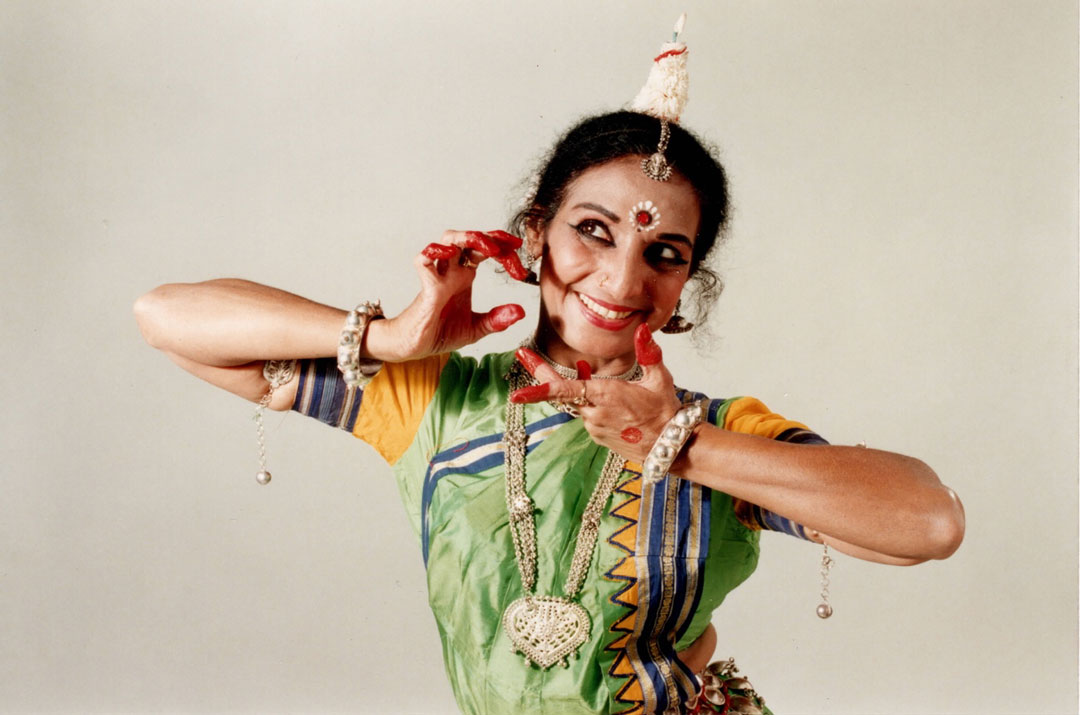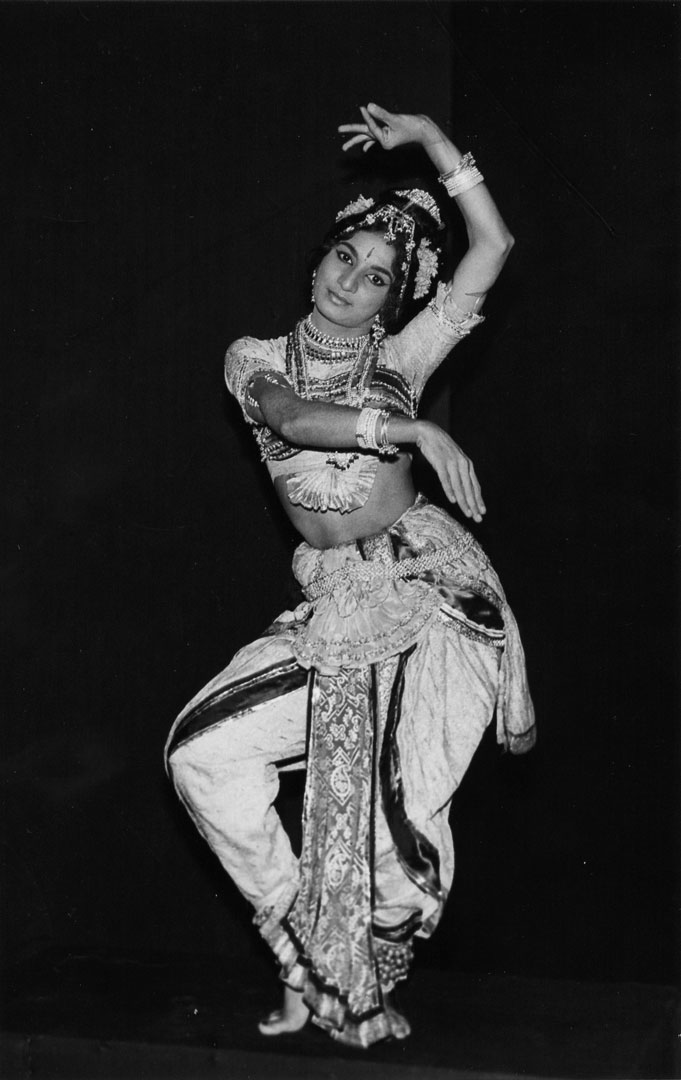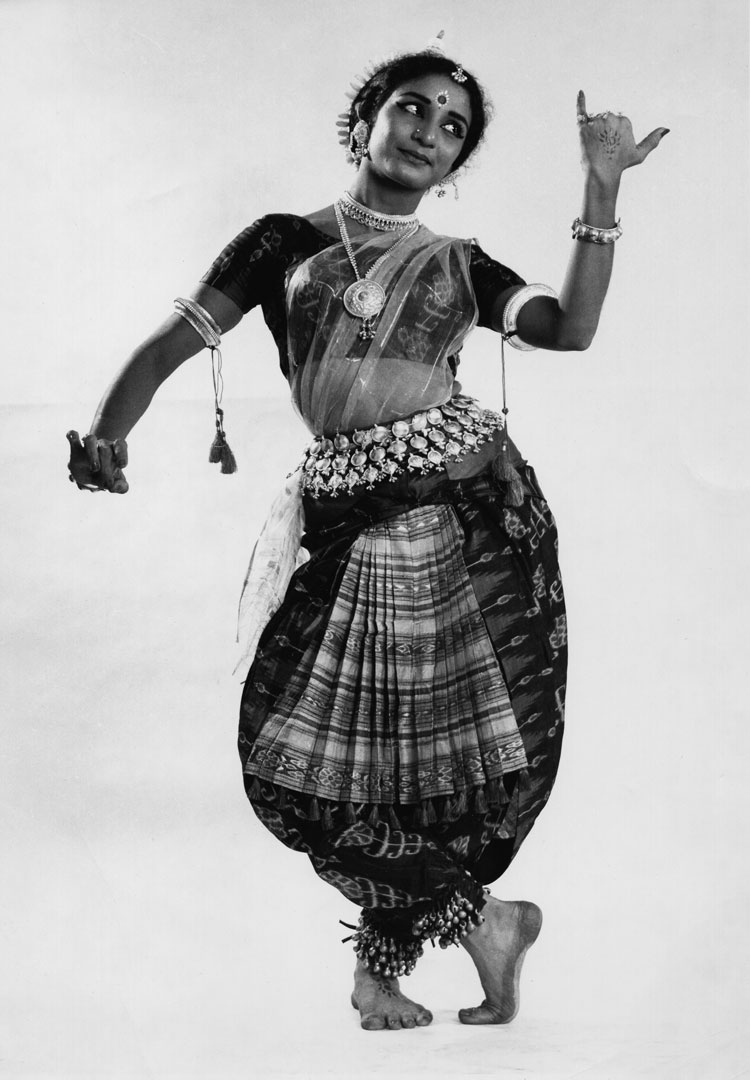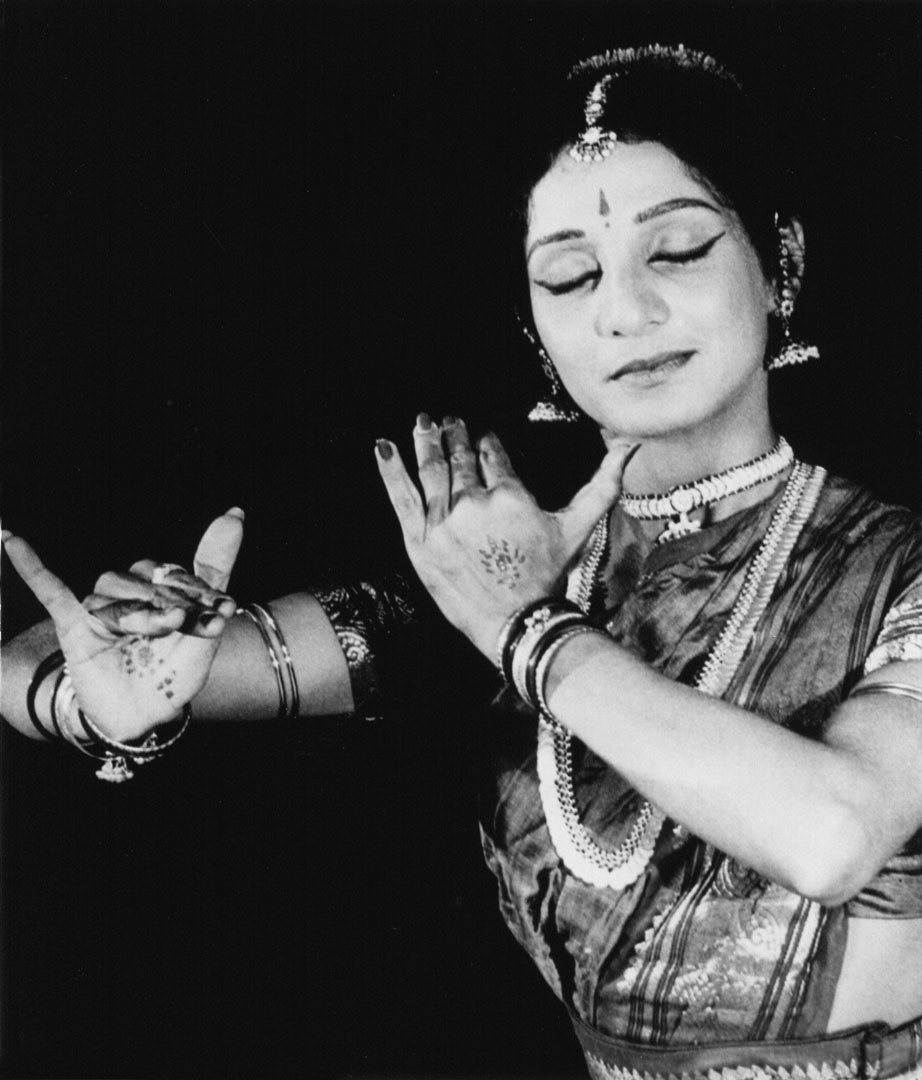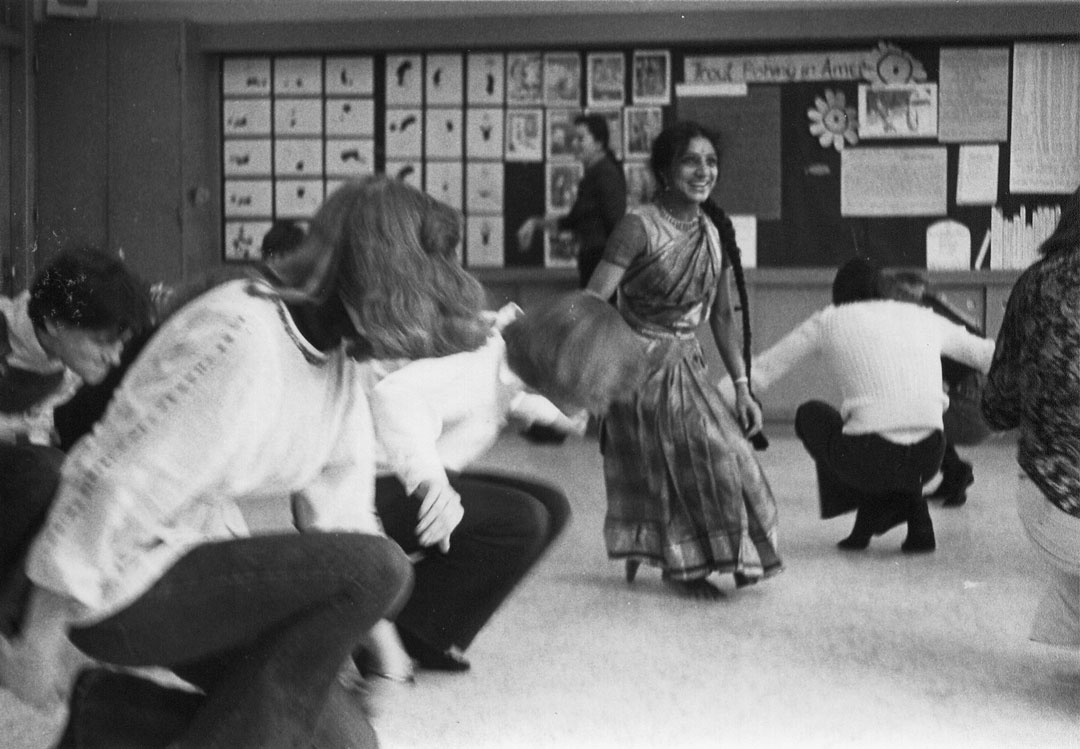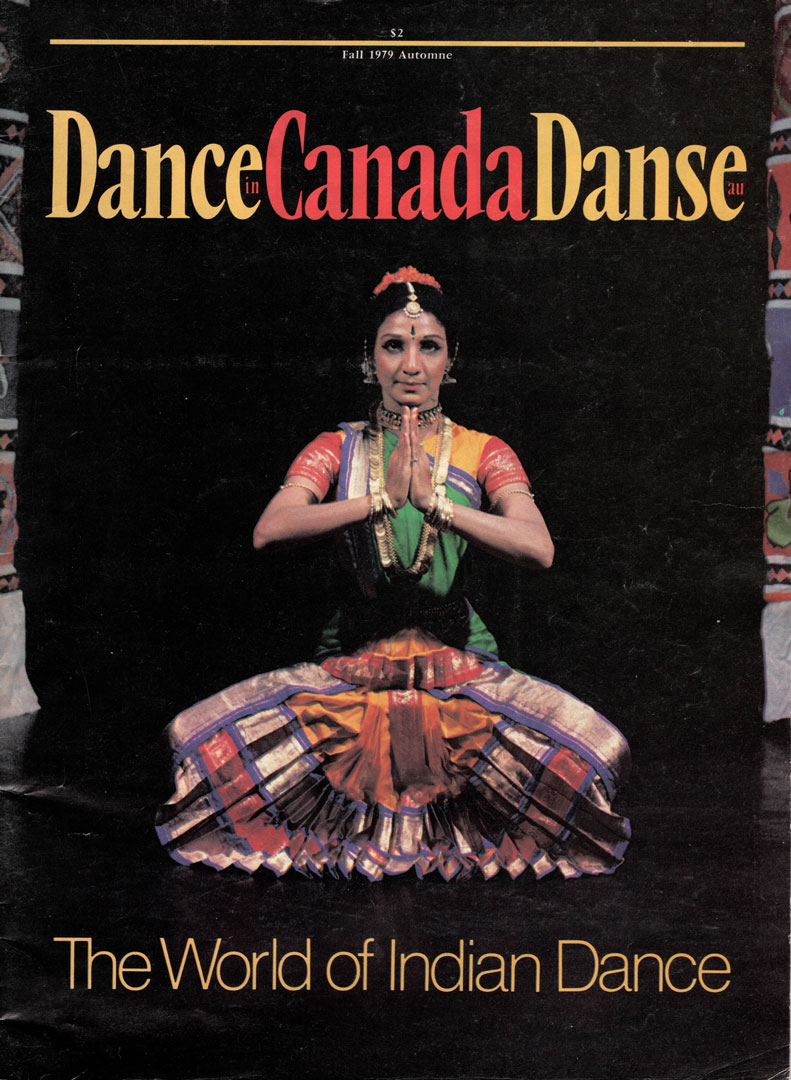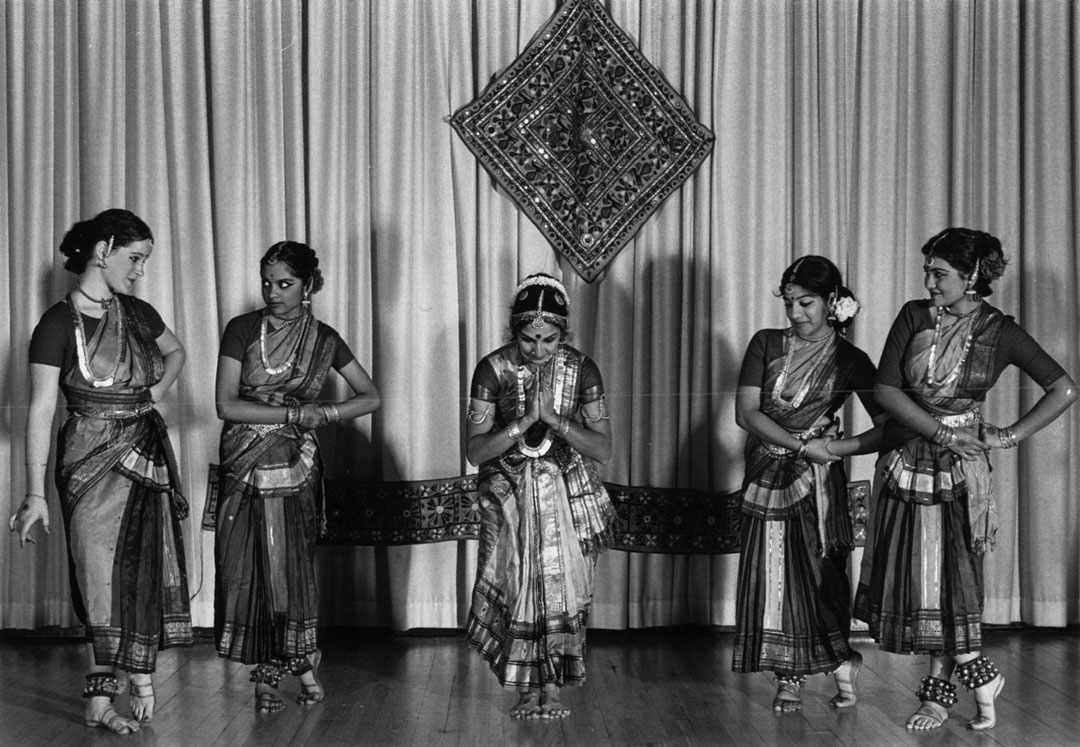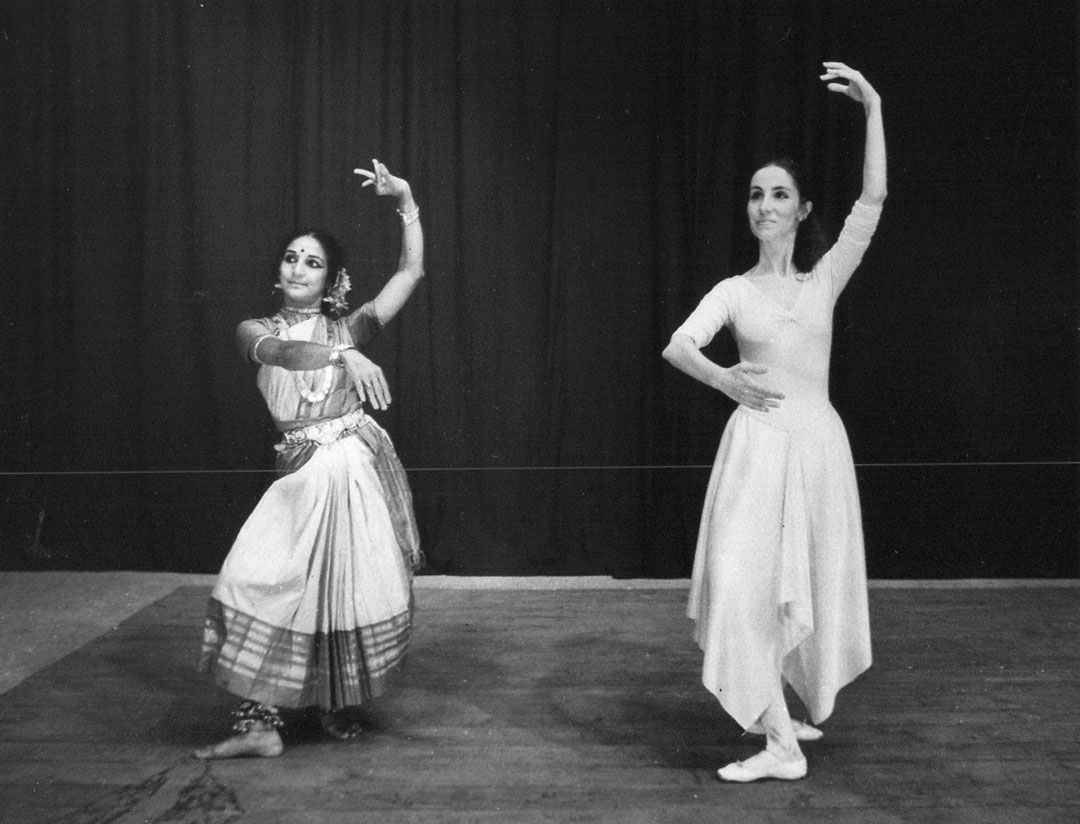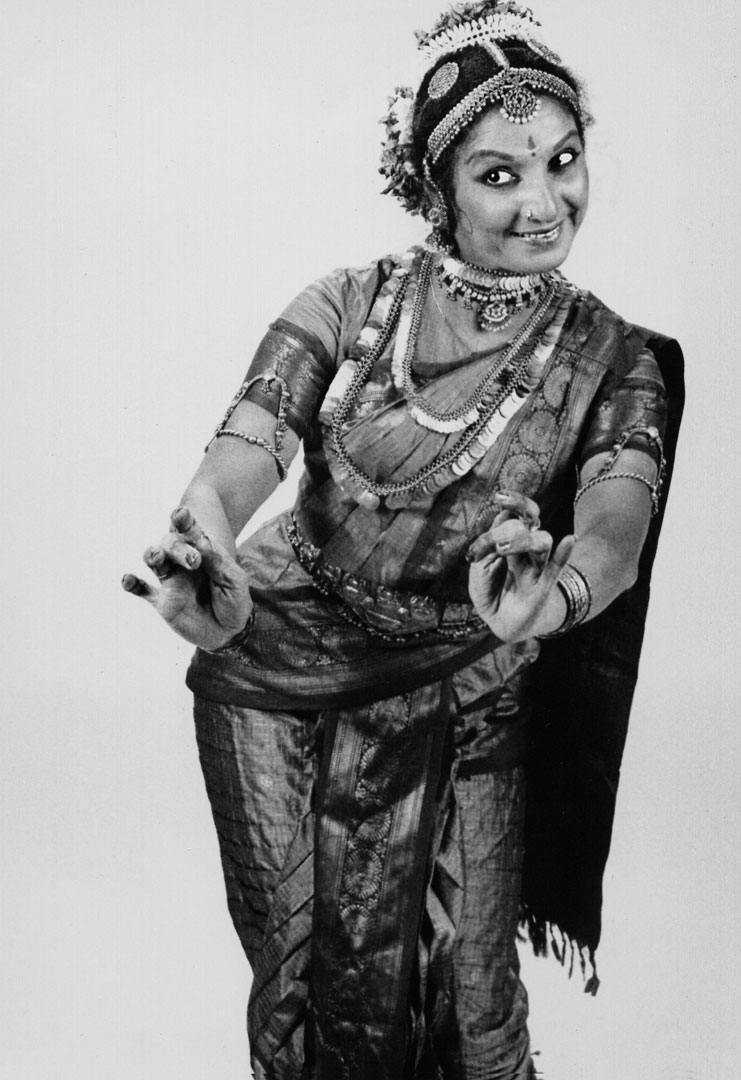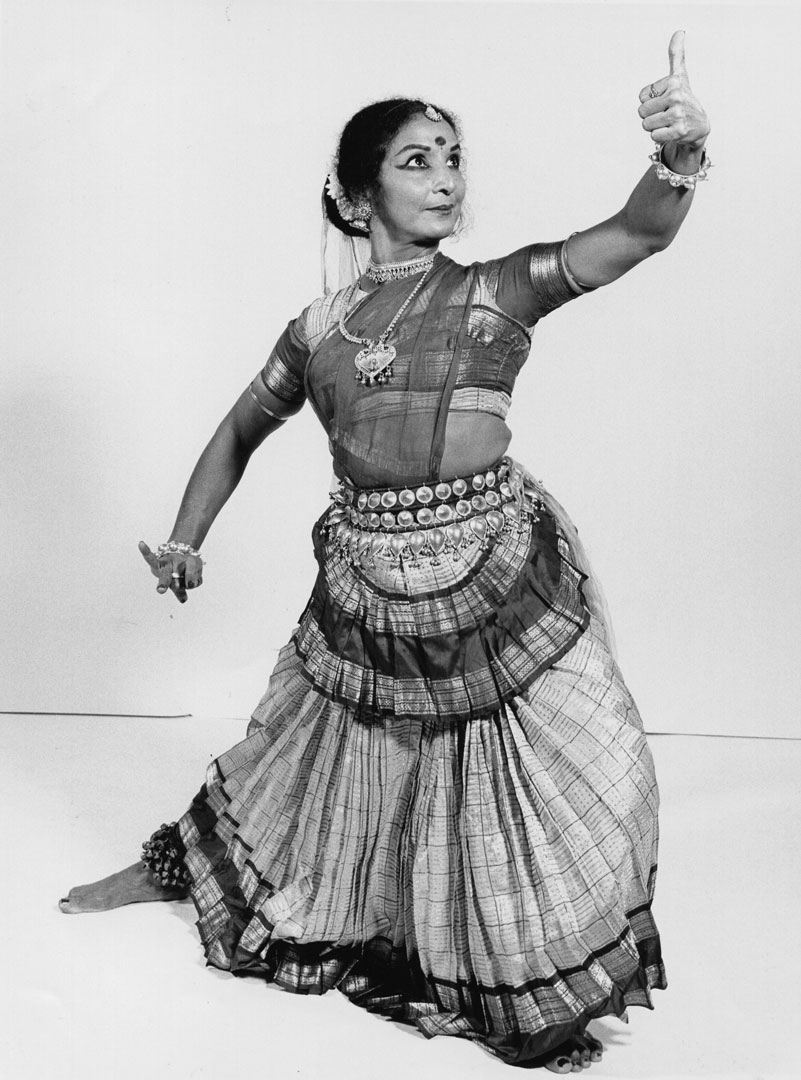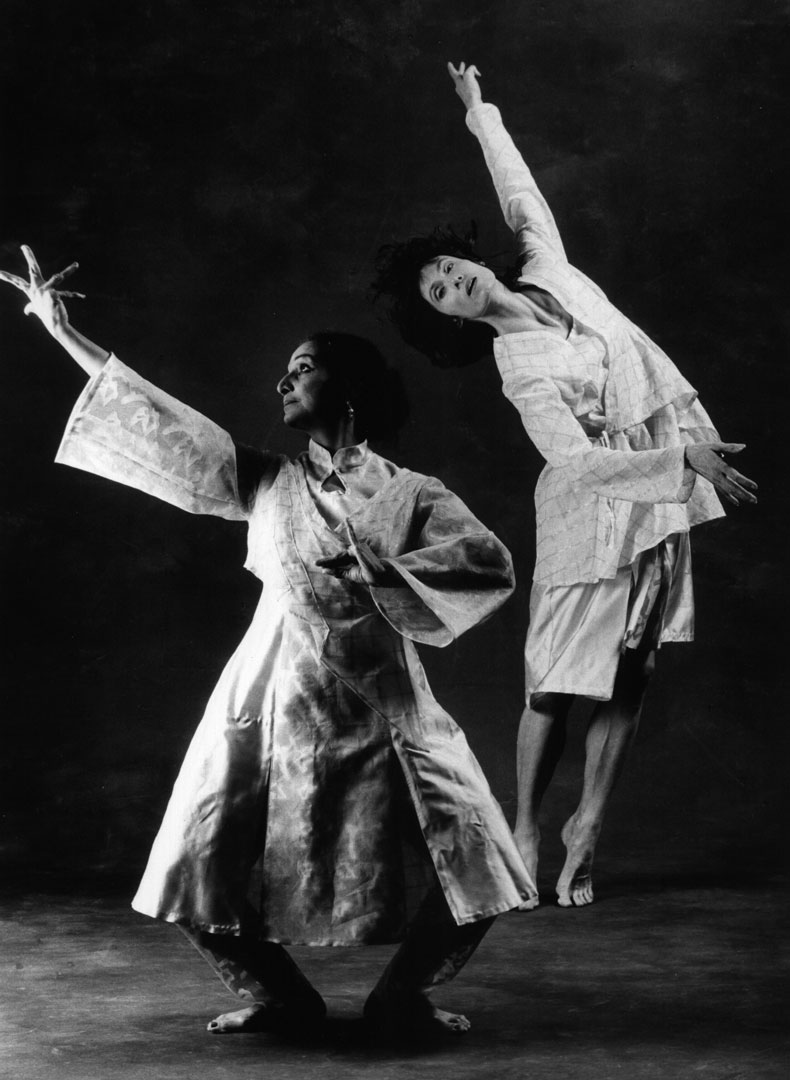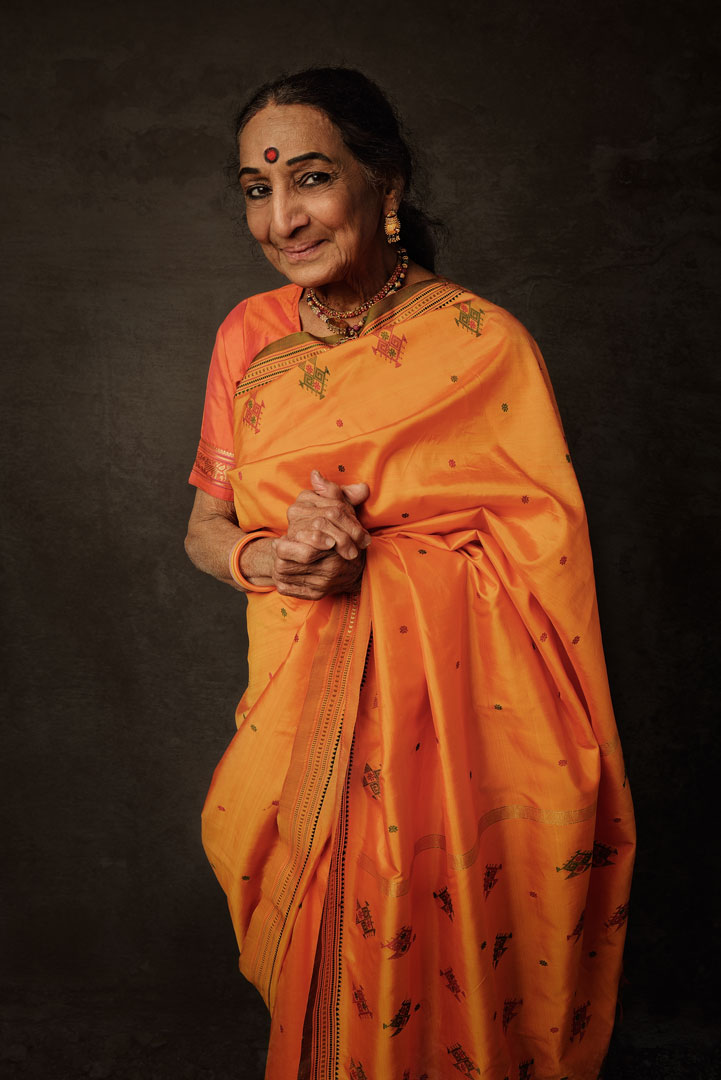MENAKA THAKKAR
March 3, 1942 – February 5, 2022
By Rosemary Jeanes Antze
A diminutive figure, clad in a stunning apple-green sari, bordered with yellow, ornamented with silver filigree necklace, bracelets and a triple-stranded belt, this is a vision I have of Menaka Thakkar performing the classical Indian dance style of Odissi. Her dark eyes, rimmed with black kohl, turn coyly to one side, her hands mime a bee alighting on a lotus flower, and a flashing smile illuminates her face. Here she is, absorbed in her passion and her art. Today I remember being entranced by her rhythmic brilliance and evocative storytelling, as I try to digest the recent news that she left this world on February 5, 2022, less than a month before her 80th birthday. What a life you travelled, dear Menaka, 50 years of them in Canada, and we were friends for most of those.
I first heard of Menaka in 1974 when I was staying in the south Indian city of Madras, studying Odissi with guru Ramani Ranjan Jena. As I made my plans to return home, he suggested that I look up one of his students who had recently moved to Toronto. Soon after I flew home, I went up to York University to take class. There, Grant Strate, with whom I’d danced in the National Ballet of Canada, introduced me to Menaka. We hit it off right away. I showed her what I had learned in India and she invited me to watch her classes and rehearsals. How delightful it was to see her creating her early dance dramas, with a very young Nova Bhattacharya performing in the Wise Monkey and Foolish Crocodile. It was also exciting to see her early students’ debut performances, arangetrams – among them Nova, Gitanjali Kolanad and Jennifer Sharpe – as her teaching began bearing fruit.
Not long afterwards, Michael Crabb invited me to write a series of articles about Indian dance for Dance in Canada magazine. We set up a photo shoot at Lawrence and Miriam Adams’s 15 Dance Lab and Menaka was featured on the cover in the Fall of 1979. I continued to admire her performances – the classical repertoire, but also her own choreography with a feminist twist, as in Sita Swayamvaram. Then came her forays into works of fusion, collaborations with Grant Strate, Robert Desrosiers, Claudia Moore, and more. I had the privilege of reviewing her shows and writing reports on her company for the various arts councils. It was gratifying to see her start to receive good funding for her projects.
The whole Thakkar family was deeply devoted to the arts. Her brother, Rasesh (who died just two weeks before Menaka), took a job as a professor at York partly with an eye to its Fine Arts department as a potential landing place for his sisters: Sudha, Menaka’s first dance teacher, was an accomplished filmmaker and photographer while Pragna became a doctoral student in Sanskrit drama at University of Toronto. Sudha later flourished in her role as impresario and presenter with Kalanidhi Fine Arts. Their festivals and conferences not only featured Menaka and company, but also brought dancers together from across North America, and included some of the most illustrious artists and scholars from India. Many vital conversations about the changing world of Indian dance as it moved beyond its borders and re-imagined its traditions, took place right here in Toronto. I was lucky to be a part of these.
Menaka’s 50 years in Canada were filled with constant exploration and creation. At the time of her 20th anniversary, when she was honoured with an honorary doctorate from York University, we sat down for an interview. As I read over the text now, I am struck by her insight into the body as an instrument, her total dedication to dance, and yet her remarkably open and flexible mind. She joked with me that she had wanted all her siblings to remain unmarried – like her – so their devotion to the arts would be absolute. She also had an astute understanding of her role in her community, connecting the Canadian lives of her young students with the sensibilities and traditions of their cultural origins.
I was very touched when Menaka invited me to perform the Odissi Mangalacharan at the performance to mark her 25th anniversary in Canada. With great attention to detail, she rehearsed me in the dance that I had learned in India many years earlier. She even lent me a lovely purple stitched sari and silver jewelry for the celebration at York’s Burton Auditorium, which included her many long-time students.
With Rasesh’s unwavering assistance, her company, Menaka Thakkar Dance Company, and school, Nrtyakalā, continued to flourish. More recently they pioneered video technology to share live classes and performances with audiences in other parts of Canada and as far away as India.
It has been fascinating to witness several generations of dancers nurtured by Menaka, who’ve distinguished themselves in both traditional dance and innovative work. It is these daughters-in-dance who carry Menaka’s teaching and spirit into the future.
How thankful I am that Dance Collection Danse inducted Menaka, alongside such luminaries as Karen Kain and the Toronto Dance Theatre’s three founders, into their Hall of Fame in 2019. The occasion, held at the elegant Globe and Mail Event Centre, was a beautiful tribute to all 11 inductees. A group of Menaka’s students made her a dance offering. Then the presentation of the award brought tears to my eyes. It was Nova Bhattacharya, who introduced Menaka with great heart and humour – saying how she started studying with (“you might say, was indentured to”) Menaka, when she was seven. Menaka spoke briefly to accept the honour, but because of a sore throat, she passed the mic to her brother Rasesh who read her speech. To those of us present, this moment captured so much of the emotion and passion of Menaka’s life in dance, sustained by the love and support of her family, even while she affirmed her ongoing commitment to sharing dance in ever more innovative and accessible ways. This is how I will remember the sparkle of Menaka, encircled by her closest dancers as well as the larger dance community, gorgeous in her saffron (the colour of sadhus) silk sari, humble to be so honoured yet determined to continue dancing into the future.
BIOGRAPHY
Dr. Menaka Thakkar was an internationally renowned and multi-honoured dancer, choreographer, teacher and institution builder who was a leader in Indian dance in Canada for over 40 years. She created generations of Indian dancers in the classical systems of Bharatanatyam, Odissi and Kuchipudi across the country. As a choreographer, she created a large number of original works and successfully experimented with new forms, movement and dance vocabulary. She founded the first school of Indian dance in Canada, Nrtyakala, the Canadian Academy of Indian Dance. She then founded the first professional company of Indian dance called Menaka Thakkar Dance Company. In 1993 she received an honorary doctorate (D.Litt) from York University and was made an Adjunct Professor of Dance there. Other honours include the 2006 City of Toronto and Toronto Life Magazine “face the arts” acknowledgement, the 2012 Walter Carsen Prize for Excellence in Performing Arts (Dance) administered by the Canada Council for the Arts, and the 2013 Governor General’s Award for Lifetime Achievement in the Performing Arts (Dance). She was inducted into the Dance Collection Danse Hall of Fame in 2019.
Click Here to watch her induction in to the DCD Hall of Fame with presenter Nova Bhattacharya.
Click Here to watch an interview with Menaka Thakkar.
PRIVACY
REFUNDS AND RETURNS
TERMS OF SERVICE
SHOPDCD
DCD HALL OF FAME
DCD DISCOVER (Coming Soon)
DCD MAGAZINE
ADVERTISE IN DCD MAGAZINE
PERSONNEL
Miriam Adams, C.M.
Co-founder/Advisor
Amy Bowring
Executive and Curatorial Director
Jay Rankin
Administrative Director
Vickie Fagan
Director of Development and Producer/Hall of Fame
Elisabeth Kelly
Archives and Programming Coordinator
Michael Ripley
Marketing & Sales Coordinator
CONTACT
1303 – 2 Carlton St.
Toronto, ON
M5B 1J3
Canada
Phone: 416-365-3233
Fax: 416-365-3169
info [AT] dcd.ca
HOURS
Mon. – Fri. 10 a.m. – 5 p.m.
Appointment Required
Contact our team by email or call one of the numbers above








